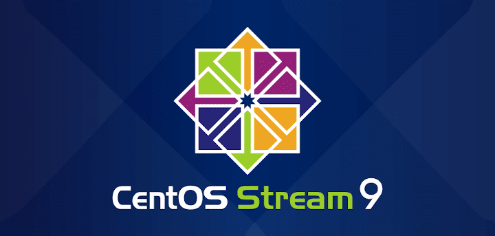
Initial Settings
Below are some useful external repositories to install useful softwares on CentOS Stream 9.
Step [1] Add EPEL that Fedora project provides packages which are specially built for RHEL
[root@bizantum ~]# dnf -y install epel-release epel-next-release
[root@bizantum ~]# vi /etc/yum.repos.d/epel.repo
[epel]
name=Extra Packages for Enterprise Linux $releasever - $basearch
# It is much more secure to use the metalink, but if you wish to use a local mirr
ror
# place its address here.
#baseurl=https://download.example/pub/epel/$releasever/Everything/$basearch/
metalink=https://mirrors.fedoraproject.org/metalink?repo=epel-$releasever&arch=$$
basearch&infra=$infra&content=$contentdir
# [enabled=1] = repository enabled, [enabled=0] = repository disabled
enabled=1
# to add [priority=*], it can set priority to repository
# it can specify [1-99], [1] is highest, default without the line is [99]
priority=10
gpgcheck=1
countme=1
gpgkey=file:///etc/pki/rpm-gpg/RPM-GPG-KEY-EPEL-$releasever
.....
.....
# set EPEL Next, too, for your needs
[root@bizantum ~]# vi /etc/yum.repos.d/epel-next.repo
[epel-next]
name=Extra Packages for Enterprise Linux $releasever - Next - $basearch
# It is much more secure to use the metalink, but if you wish to use a local mirror
# place its address here.
#baseurl=https://download.example/pub/epel/next/$releasever/Everything/$basearch/
metalink=https://mirrors.fedoraproject.org/metalink?repo=epel-next-$releasever&arch=$basearch&infra=$infra&content=$contentdir
.....
.....
# if disabling with [enabled=0] regulary but want to enable it temporary, run like follows
[root@bizantum ~]# dnf --enablerepo=epel,epel-next install [Package]
Step [2] Add Remi's RPM repository that provides useful packages like latest PHP and so on.
[root@bizantum ~]# dnf -y install https://rpms.remirepo.net/enterprise/remi-release-9.rpm
# included repository files
[root@bizantum ~]# rpm -ql remi-release
/etc/pki/rpm-gpg/RPM-GPG-KEY-remi
/etc/pki/rpm-gpg/RPM-GPG-KEY-remi.el9
/etc/pki/rpm-gpg/RPM-GPG-KEY-remi2017
/etc/pki/rpm-gpg/RPM-GPG-KEY-remi2018
/etc/pki/rpm-gpg/RPM-GPG-KEY-remi2019
/etc/pki/rpm-gpg/RPM-GPG-KEY-remi2020
/etc/pki/rpm-gpg/RPM-GPG-KEY-remi2021
/etc/yum.repos.d/remi-modular.repo
/etc/yum.repos.d/remi-safe.repo
/etc/yum.repos.d/remi.repo
/opt/remi
# only [remi-safe] and [remi-modular] are enabled by default
[root@bizantum ~]# grep 'enabled=1' /etc/yum.repos.d/remi-*
/etc/yum.repos.d/remi-modular.repo:enabled=1
/etc/yum.repos.d/remi-safe.repo:enabled=1
[root@bizantum ~]# vi /etc/yum.repos.d/remi-safe.repo
[remi-safe]
name=Safe Remi's RPM repository for Enterprise Linux 9 - $basearch
#baseurl=http://rpms.remirepo.net/enterprise/9/safe/$basearch/
#mirrorlist=https://rpms.remirepo.net/enterprise/9/safe/$basearch/httpsmirror
mirrorlist=http://cdn.remirepo.net/enterprise/9/safe/$basearch/mirror
# [enabled=1] = repository enabled, [enabled=0] = repository disabled
enabled=1
# to add [priority=*], it can set priority to repository
# it can specify [1-99], [1] is highest, default without the line is [99]
priority=10
gpgcheck=1
repo_gpgcheck=1
gpgkey=file:///etc/pki/rpm-gpg/RPM-GPG-KEY-remi.el9
.....
.....
# if disabling with [enabled=0] regulary but want to enable it temporary, run like follows
[root@bizantum ~]# dnf --enablerepo=remi-safe install [Package]
# also possible to use Moduler Repository
[root@bizantum ~]# dnf --enablerepo=remi-modular --disablerepo=appstream module list
Remi's Modular repository for Enterprise Linux 9 - x86_64
Name Stream Profiles Summary
composer 2 [d] common [d] Dependency Manager for PHP
memcached remi common [d] High Performance, Distributed Memory Object Cache
php remi-7.4 common [d], devel, minimal PHP scripting language
php remi-8.0 common [d], devel, minimal PHP scripting language
php remi-8.1 common [d], devel, minimal PHP scripting language
redis remi-5.0 common [d] Redis persistent key-value database
redis remi-6.0 common [d] Redis persistent key-value database
redis remi-6.2 common [d] Redis persistent key-value database
Hint: [d]efault, [e]nabled, [x]disabled, [i]nstalled









Comments
Post a Comment
Thank you for your comment! We appreciate your feedback, feel free to check out more of our articles.
Best regards, Bizantum Blog Team.